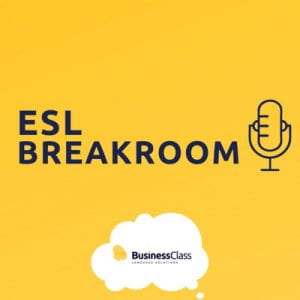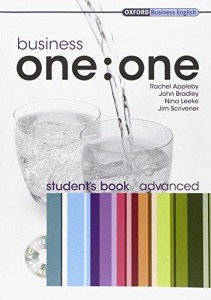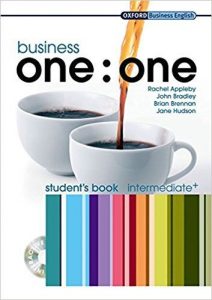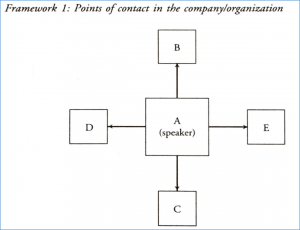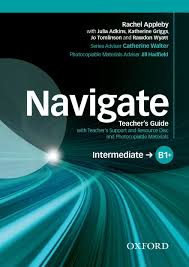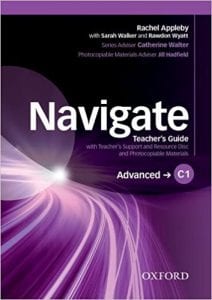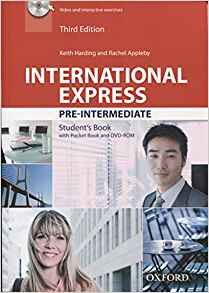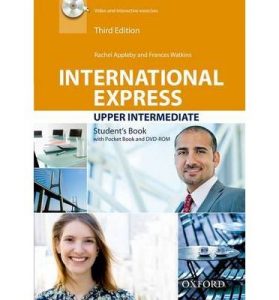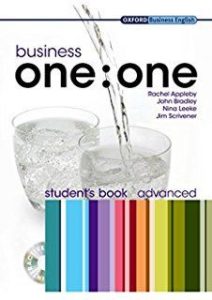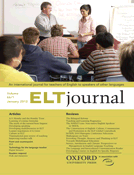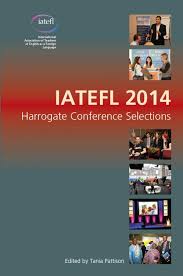(Please note that the date you can see above is when I started this blog; I update it regularly!)
*****
BESIG 2025, April 27: online webinar
Information coming soon!
*****
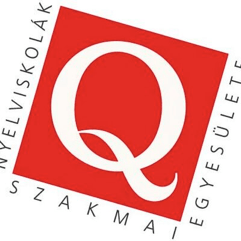 NYESZE Conference, 2025 April 5
NYESZE Conference, 2025 April 5
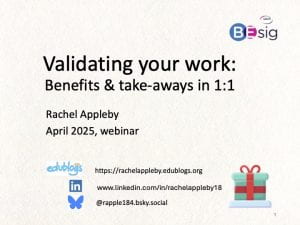
We often invest hours into planning; how exactly do our students benefit? Do we know? Do they?
Effective ‘planning’ in 1:1 is about preparation, flexibility and respectfulness. While classes can seem relaxed and content often unpredictable, it’s still crucial to determine valid takeaways and strategies for defining them.
This workshop looks at what 1:1 students often expect, with a little background theory to support planning vs. preparation. While we cannot not plan, we do need to employ flexible strategies, so that we can respond to student needs on the day.
So we’ll be looking at ways to tackle ‘the unexpected’, and I’ll be demonstrating a selection of tried and tested activities which respond to what our student might require there and then. Finally, I’ll focus on how we can define, with the student, specific, tangible and positive benefits.
Ppt slides: 1_1 Takeaways and Benefits PDF

ELTABB AGM, Berlin 1 March 2025
PRESENTATION SKILLS:
Delivering professionally, & with confidence!
A whistle-stop 90′ workshop for ELTABBers:
Many of us – as well as many of our students / clients – have to give formal talks or presentations. This could be to a large audience, or to a small group – or even just to one person to ‘sell’ a great idea. Most people find this challenge nerve-wracking – in their own, not least in a second language!
While there’s a lot that can go wrong and is out of our hands, there’s a good deal that we can control. Course materials provide lists of “useful phrases”, but they’re no good without context and conviction. What I need, and what my students specifically find useful, is how to get started, how to engage an audience, and how to end effectively … and, en route, ways to keep an audience engaged and alert!
In this workshop, I draw on my own hit-n-miss experiences, and those of my students, include participants’ experiences, and look at how we can be confident in delivering a clear and bold message. We’ll be looking at hooks and tools to help us and our students not just survive, but succeed and enjoy the experience!
PPT slides – 1 Rachel Appleby ELTABB 2025 March 1 Conf Prof PDF
*****
Metropolitan University, Budapest
December 2024 – February 2025
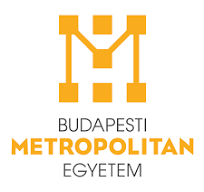
(1) How to Get Published
– a two-day workshop for PhD students / university staff
Making a move into getting yourself published presents a host of challenges. This workshop takes a whistle-stop tour through the process of writing an academic paper – from the initial idea, to submitting an article to a journal, and handling revision stages.
(2) Networking Skills
– a two-day workshop for PhD students / university staff
This workshop is intended for those attending a conference or symposium, or those aiming to construct a network for personal and professional development. The workshop looks at how focused preparation can maximise the potential for developing one’s contacts and building an effective network. It focuses on the three planning stages of a networking event – the before, during and afterwards, alongside strategies for ensuring efficient connections and effective follow-up, and ways to do this both online and face-to-face.
(3) Supporting Students’ Thesis Writing
– a three day methodology course for university staff
This 18-hour workshop, run over 3 days, is intended for tertiary level teachers working with undergraduates (BA / BSc) in English. Supporting Students’ Thesis Writing has a double focus: it covers a review of the conventions of academic writing required in English and will demonstrate how to make this content accessible to our students. Throughout the workshop, participants will be activity involved in tasks and exercises which, in turn, they can work on for adapting to their own classroom and subject environments.
BESIG 2024, Valletta, Malta, 22-24 November 2024
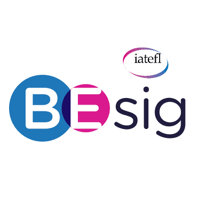 “Tangible takeaways every lesson: validating 1:1 classes!”
“Tangible takeaways every lesson: validating 1:1 classes!”
We often invest hours into planning; how exactly do our students benefit? Do we know? Do they?
Effective ‘planning’ in 1:1 is about preparation, flexibility and respectfulness; in addition, empathy and teacher authenticity are key during the class itself. While classes can seem relaxed and content often unpredictable, it’s still crucial to determine valid takeaways and strategies for defining them.
PPT slides – Appleby BESIG24 1_1takeaways PPT
*****
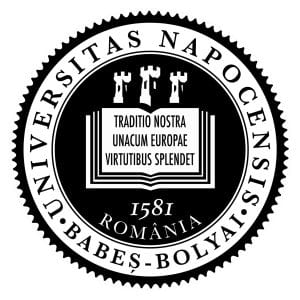
UBB – University, Cluj, Romania September 2024 (2023, 2022)
Teaching Academic Writing Skills
- a 3-day methodology workshop for University staff, to support their students’ academic writing at BA and MA level
Presentation Skills
- a 15-hour workshop for University staff presenting at conferences, and/or wishing to refine their delivery when talking in front of an audience.
Advanced Academic Teaching Skills
- a 5-day methodology workshop for University staff to support their international students’ learning whilst teaching in English.
*****
HELTA Hamburg, 18 November 2023
‘Presentation coaching: delivering value faster!’
Most clients who ask me for help preparing for a talk lack confidence, and have very specific needs. This workshop looks at three clients – a politician, a university department head, an art historian: respectively, giving a keynote speech; delivering rich content with clarity; handling Q+A. I’ll show how ongoing collaboration and evaluation helped them present with impact and success.
PPT slides: 1 HELTA VIP Presentation Coaching prep PDF
Handout: Presentations Coaching Handout Appleby 2023 HELTA Hamburg Nov 2023
“The confidence to stand up and talk!”
Many of us – as well as many of our students / clients – have to give formal talks or presentations. This could be to a large audience, or to a small group – or even just to one person to ‘sell’ an idea. Most people find this challenge nerve-wracking! Course materials provide lists of “useful phrases”. However, what I need, and what my students specifically find useful, is how to get started, how to engage an audience, and, not least, how to end effectively … and, en route, ways to keep listeners alert!
This workshop will look at hooks and tools to help speakers not just survive but succeed!
Handout: Presentations Confidence Handout Appleby 2023 HELTA Hamburg Nov 2023 2pp
 NYESZE Conference, 2023 May 13
NYESZE Conference, 2023 May 13
“Content is King”* – or is it? We have access to great materials, we have fantastic ideas and we’re ready for class. But are we really ready? There’s another crucial element for effective lessons.
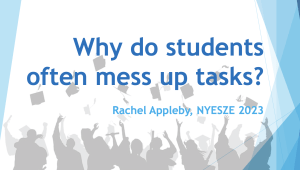
Do our students know exactly what to do at each stage of the lesson? How do we make that clear? Have we planned it up front? And what does this “planning” mean anyway?
This session will take an interactive look at a few key reminders to help make your lessons go like clockwork!
[*Bill Gates 1995]
Handout: Rachel Appleby NYESZE 2023 Talk on Instructions Handout
Ppt slides: Rachel Appleby Instructions NYESZE 13May2023 PPT
******
IATEFL Hungary, Creative Cafe 2022 December 2
Our wonderful Ukrainian Space project – how it works, what it is and what it isn’t, and a showcase from two of our volunteer teachers!
*****
BESIG 2022, Gdańsk, PL, 11-13 November
 “The confidence to stand up and talk!”
“The confidence to stand up and talk!”
Many of us – as well as many of our students / clients – have to give formal talks or presentations. This could be to a large audience, or to a small group – or even just to one person to ‘sell’ an idea. Most people find this challenge nerve-wracking!
Course materials provide lists of “useful phrases”. However, what I need, and what my students specifically find useful, is how to get started, how to engage an audience, and, not least, how to end effectively … and, en route, ways to keep listeners alert!
This workshop will look at hooks and tools to help speakers not just survive but succeed!
Handout: Presentations Confidence Handout Appleby 2022 BESIG Gdansk
Powerpoint slides: Presentations Confidence PPT Appleby 2022 BESIG Gdansk
* * * * *
NYESZE Conference, 2022 October 19

This session will demonstrate strategies intended to challenge and motivate advanced students: activate passive vocabulary, iron out mistakes, promote fluency, demonstrate progress, and ultimately build confidence. In the second part of the workshop, participants will be encouraged to try out some online vocabulary tools to help focus on the words our students need, and promote a degree of autonomy.
*******
IATEFL Hungary, 2022 Oct 8 – Siófok
IATEFL 2022, May 16 – Belfast, UK
1. BESIG Pre-conference event. Do join us! (10am-4pm)
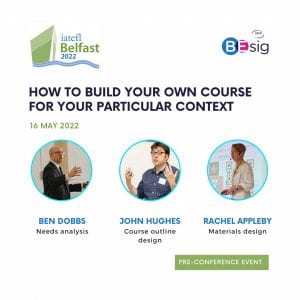
2. Careers’ fair, May 17 – Exhibition Hall 11.25-11.45, + 60′ Q&A
‘How to teach one:one’
Slides: Appleby IATEFL2022 Belfast HOW to 1_1 PDF
This session will look at ‘threes’ in three key areas: strategies to run dynamic one:one classes, ways of responding on- the-spot to changing student needs, and how to provide meaningful and varied language practice during class time. It’ll be suitable for those new to one:one teaching, as well as those with experience.
3. Careers’ fair, May 18 – ICC, Room 3A 12.00-12.45
‘Presentation coaching: delivering value faster!’
(for the Budapest Training Institute – a branch of Euroexam International)
Most clients who ask me for help preparing for a talk lack confidence, and have very specific needs. This workshop looks at three clients – a politician, a university department head, an art historian: respectively, giving a keynote speech; delivering rich content with clarity; handling Q+A. I’ll show how ongoing collaboration and evaluation helped them present with impact and success.
Slides: (coming soon)
*******
2022 April 9
NYESZE Conference

2022 March 11-18
EMI Course Japan and East Asia
Online intensive training for university lecturers in Japan and the Far East
 .
.
.


 This workshop looks at 3 clients: a VIP politician, an IT expert, and an art historian: winning over an international crowd; delivering complex content with clarity; handling the Q+A.
This workshop looks at 3 clients: a VIP politician, an IT expert, and an art historian: winning over an international crowd; delivering complex content with clarity; handling the Q+A. 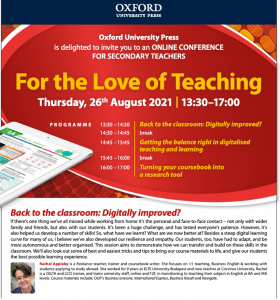
If there’s one thing we’ve all missed while working from home it’s the personal and face-to-face contact – not only with wider family and friends, but also with our students. It’s been a huge challenge, and has tested everyone’s patience. However, it’s also helped us develop a number of skills! So, what have we learnt? What are we now better at? Besides a steep digital learning curve for many of us, I believe we’ve also developed our resilience and empathy. Our students, too, have had to adapt, and be more autonomous and better organised. This session aims to demonstrate how we can transfer and build on these skills in the classroom. We’ll also look out some of best and easiest tricks and tips to bring our course materials to life, and give our students the best possible learning experience.
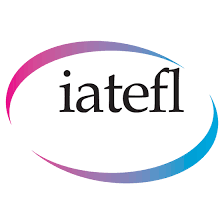
This session will look at 3 key areas: strategies to run dynamic one:one classes; ways of responding on-the-spot to changing student needs; and how to provide meaningful and varied language practice during class time.
It’ll be suitable for those new to one:one teaching, as well as those with some experience.
NYESZE online conference
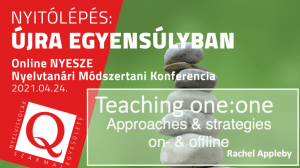
This session will look at three key areas of effective one:one teaching:
- strategies to run dynamic classes
- ways of responding on-the-spot to ever-changing student needs
- how to provide meaningful and varied language practice during class time.
In each case, we’ll look at how to hand over responsibility to the student.
“Teaching one:one – online and offline strategies”

Interactivity will be the order of the day .. come along with your zoom and screen annotation tools at the ready!
Do you ever stop and think specifically about the type of questions you want ask in class? Do you consider the sort of answer(s) you expect to get, and from whom? Do you also think about how to get the best answer out of students – from all students, or just a specific student? What if we could involve different and more students, and elicit richer answers?
In this session, I’ll be focusing on how we can become more aware of what we do, the role questions play in course materials and exam tasks, and – as a result – how we can fine-tune and sharpen our questioning skills. Ultimately, this leads to better student involvement, engagement and challenge.

Handouts – ways to log and record what you do in class: Questions Action plan Rachel Appleby 2pp Questions Tasks Rachel Appleby 2pp

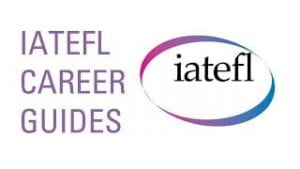

In this session, I will look at three key areas:
– strategies to run dynamic one:one classes
– ways of responding on-the-spot to changing student needs
– how to provide meaningful and varied language practice during class time.
This session is considered suitable for both those who are new to one:one teaching, as well as those with some experience.
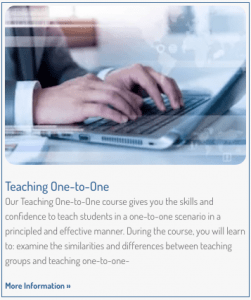
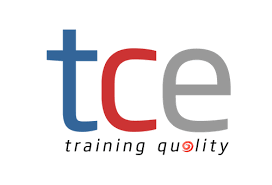
 Building / Advanced-level issues: Addressing fluency & lexis (Saturday 1pm CET)
Building / Advanced-level issues: Addressing fluency & lexis (Saturday 1pm CET)
(interactive online workshop)
Advanced learners generally cope effectively at work. They have a good lexical range in their field and are either fluent but with some mistakes, or instead may lack their desired fluency. So they may feel they don’t give a good impression, they lack confidence and are frustrated.
This session will demonstrate strategies intended to challenge and motivate advanced students: activate passive vocabulary, iron out mistakes, promote fluency, demonstrate progress, and ultimately build confidence.
PPT slides: Rachel Appleby Advanced Level issues confidence building PDF
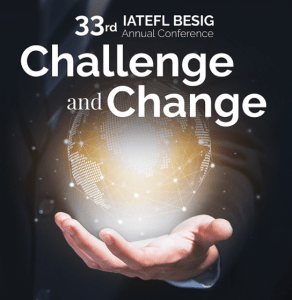



The Teacher as a ‘Professional Question Maker’

As teachers, we ask 200-300 questions a day, but are we really aware of what each question does, of how we’re asking them, and what happens afterwards?
Questions are key in motivation – from engaging our students in the lesson’s topic to enabling them to personalise and “own” new language. We also use questions to organise students and activities, clarify language, and check understanding. Successful lessons will additionally provide the appropriate level of challenge, involve each student and elicit valuable contributions, and promote autonomy.
What if we could do all this even more effectively in every lesson simply by sharpening our questioning technique?
This session will look at the kinds of questions we ask, and raise awareness of the power questions can have in making learning more effective and involving.
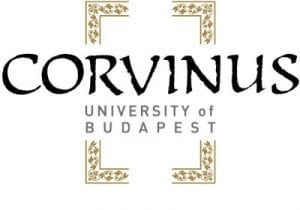

Stack of books on a wooden library shelf, one of them open on top, multicolored book spines background.


Various faculty members at HU/RO Babeş-Bolyai University in Cluj, Romania
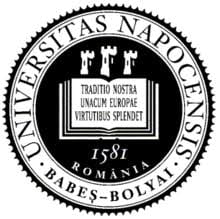

Personalised input: minimum prep & maximum impact
In attempts to tailor BE & ESP courses as closely as possible to clients’ needs, we often find ourselves struggling with a huge range of materials – published course books, websites, and on-/offline documentation, including students’ own work-related sources – not to mention various other goodies we cook up ourselves!
This workshop looks at five sources and ways of exploiting them with minimal preparation, but to maximum effect, ensuring the students’ interests remain at the centre of learning.
Handout: Appleby Personalised input Handout PDF 2
Ppt slides: Appleby Personalised input 20_6_20 PPT PDF
Podcasts we listen to: https://padlet.com/rachelappleby/Bookmarks

[Munich Skyline Silhouette by Marian Voicu fineartamerica.com]
Business Writing: does it still exist? Approaches and activities, on & offline
Every day, we’re bombarded with short, direct messages, attention-grabbing posts, abbreviations & emojis, and visuals galore – not just from friends, but from colleagues and for work too. Social media contributes increasingly to work-related content.
So, what does this mean for ‘business writing’? What’s required now of our learners, and how can we prepare, motivate and help them in class?
This workshop aims to get you thinking about how you and your students write, and how we can stay on top of the game with clear and concise reader-focused texts.
Ppt slides: Appleby Business Writing online MELTA PPT PDF
Emails “from Prince Charles” https://padlet.com/rachelappleby/dfzcanacle9e
2020 February, Tbilisi, Georgia

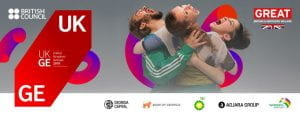
2020 February 23, BESIG online webinar

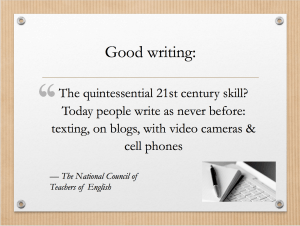


Every day, we’re bombarded with short, direct messages, attention-grabbing posts, abbreviations & emojis, and visuals galore – not just from friends, but from colleagues and for work too. Social media contributes increasingly to work-related content. So, what does this mean for ‘business writing’? What’s required now of our learners, and how can we prepare, motivate and help them in class?
This workshop, for General & Business English, aims to get you thinking about how you and your students write, and how we can stay on top of the game with clear and concise reader-focused texts.


* * *
EMI English Medium of Instruction / Academic Teaching Excellence – British Council training (for university staff)
2019 October, Corvinus University, Budapest
 Had an excellent week working with staff at Corvinus University – participants were from a very wide range of departments / faculties, incl. Finance, International Studies, Political Science, Marketing&Media, Health Economics, Social Sciences etc! I LOVED the non-stop sharing of ideas and experience, contributions and enthusiasm – thank you!
Had an excellent week working with staff at Corvinus University – participants were from a very wide range of departments / faculties, incl. Finance, International Studies, Political Science, Marketing&Media, Health Economics, Social Sciences etc! I LOVED the non-stop sharing of ideas and experience, contributions and enthusiasm – thank you!
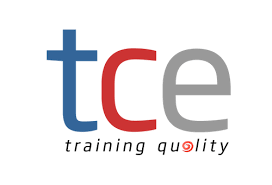
Sharpen your skills & strategies, familiarise yourself with a wide range of approaches and techniques, learn how to handle error correction effectively – and much more!
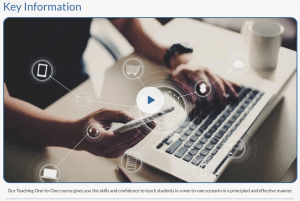
1-20 March 2020
 To be successful with teens and young adults, we need to tap into their worlds, yet still ensure we meet their goals, and ours. This session looks at writing as a process, involving individual and collaborative work, to enable students to complete successfully a variety of writing / exam tasks.
To be successful with teens and young adults, we need to tap into their worlds, yet still ensure we meet their goals, and ours. This session looks at writing as a process, involving individual and collaborative work, to enable students to complete successfully a variety of writing / exam tasks.

Univ. staff at the Faculty of Civil Engineering & Architecture in Osijek, Croatia … and what a building!




Had an amazing week with staff from 13-14 different faculties working on the ATE EMI course at HU/RO Babeş-Bolyai University in Cluj, Romania – a first for me training there. Extremely rewarding, and fun!

Just had a great week with very engaged and enthusiastic participants at Metropolitan University, Budapest – I learnt all sorts of stuff during the afternoon micro-teaching slots – my favourite part of the course!
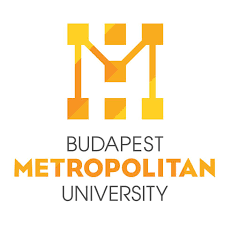
Questions are key in motivation – from engaging our students in the lesson’s topic to enabling them to personalise and “own” new language. We also use questions to organise students and activities, clarify language, and check understanding. Successful lessons will additionally provide the appropriate level of challenge, involve each student and elicit valuable contributions, and promote autonomy.
What if we could do all this even more effectively in every lesson simply by sharpening our questioning technique?
This session will look at the kinds of questions we ask, and raise awareness of the power questions can have in making learning more effective.

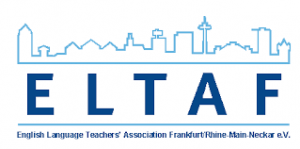
When the course book just isn’t enough, and you want to respond more closely to your students’ needs and interests, it’s easy to spend hours surfing the web, or rummaging through other books – or even inventing something yourself. Where does the time go?
This workshop looks at five ways to relate easily to our students. Each idea is quick to implement, and will get your students involved and chatting. Their interests will remain at the centre of learning, and they’ll leave class on a positive note, because we’ve demonstrated an interest in them as individuals!
Good for Business and General English adult learners.

Handout: ELTAF Appleby Handout PDF
Powerpoint slides: 2019 ELTAF Appleby Personalized input June 2019 PDF
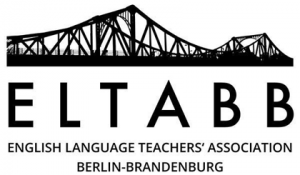
Appleby ELTABB 6_2019 References 2pp PDF
(* Here, for now…!)
* * *

Class Interaction: 1-day workshop

Writing – Tech & Youth: meeting them both half-way
To be successful with Gen Y-Z learners, we need to tap into their worlds and engage them on their terms, yet still ensure we provide constructive lessons with achievable goals. How?
This session outlines steps on a project which led to individual / collaborative writing – new Social Media accounts – and literally thousands of words on online forums with formal texts.

These were the specific Social Media sites I was talking about (the ones my Corvinus students set up) – do check them out!
Facebook: https://www.facebook.com/gastronationpublicwriting/
Twitter: https://twitter.com/PESTiVITY
Edublogs: http://ecopesters.edublogs.org/

![]()
![]()
Handout: Nyesze Appleby Writing 2019 Handout-19cpsv4
Powerpoint slides: Nyesze Appleby Writing 2019 PPT slides-2fxc17r
2019 April 13, P.A.R.K. Conference, Brno CZ
Personalised input: minimum prep & maximum impact
When the course book just isn’t enough, and you want to respond more closely to your students’ needs and interests, it’s easy to spend hours surfing the web, or rummaging through other books – or even inventing something yourself. Where does the time go?
This workshop looks at five ways to relate easily to our students. Each idea is quick to implement, and will get your students involved and chatting. Their interests will remain at the centre of learning, and they’ll leave class on a positive note, because we’ve demonstrated an interest in them as individuals!
Good for Business and General English adult learners.
Handout: Brno Appleby Handout PDF-2esfnic
Powerpoint slides: 2019 BRNO Appleby Personalized input Apr2019 PDF-1f13zqu
* * *
2019 April, IATEFL Liverpool
Very excited to be back at IATEFL UK this year – it’s a rare treat! #EMI
Resolving the challenges of teaching at tertiary level through English
Many students now choose to study in English, at home / abroad. This is putting enormous pressure on staff to teach their speciality in English (English as the Medium of Instruction – EMI). Additionally, lectures may be packed with students from different cultural backgrounds, with mixed levels of English and subject knowledge. This session demonstrates strategies to promote tutor confidence and effective learning.
The Liver Building www.tinaleaheydesigns
Handout: rachel appleby iatefl 2019 emi handout 4-191l5er
Powerpoint slides: rachel appleby iatefl 2019 lpool emi -23lfzcn
* * *
EMI English Medium of Instruction / Academic Teaching Excellence – British Council training (for university staff)
2019 March, Zagreb University, Faculty of Traffic and Transport:

An excellent week with extraordinarily motivated participants. Loved learning about the huge range of transport Croatia looks after – boats, ferries, buses, trams – and traffic light co-ordination for the emergency services. Just my thing!
… and we laughed lots.. – ongoing on whatsapp too!
EMI English Medium of Instruction / Academic Teaching Excellence – British Council training (for university staff)
2019 February, Budapest Metropolitan University:

Loved working with staff on this one-week course. We had a great week – very artsy … music, film, wine, tourism – and plenty of business to keep us on the straight an narrow!
* * *
2019 February 9, Barcelona #IHBCNELT

Personalised input: minimum prep & maximum impact
When the course book just isn’t enough, and you want to respond more closely to your students’ needs and interests, it’s easy to spend hours surfing the web, or rummaging through other books – or even inventing something yourself. Where does the time go?
This workshop looks at five ways to relate easily to our students. Each idea is quick to implement, and will get your students involved and chatting. Their interests will remain at the centre of learning, and they’ll leave class on a positive note, because we’ve demonstrated an interest in them as individuals!
Good for Business and General English adult learners.
Teaser video (a quick preview) – 1′ https://www.dropbox.com/s/sncwqq0w6diob2u/Rachel%20Appleby%20IHBCNELT%202019.MOV?dl=0
Handout: Rachel Appleby Handout IHBCNELT Feb2019-129j3b6
Slides: 2019 IHBCN ELT Appleby Personalized input BE strand Feb2019 PDF-1juhmhl
Illustration Of City Skyline Barcelona In Chinese Ink is a piece of digital artwork by Don Kuing
https://fineartamerica.com/featured/illustration-of-city-skyline-barcelona-in-chinese-ink-don-kuing.html
* * *
EMI English Medium of Instruction / Academic Teaching Excellence – British Council training (for university staff)
2019 January, Corvinus University, Budapest
Very much enjoyed working with staff on this one-week course!
2018, December, Bahrain Polytechnic
Very exciting to have run this ‘first’ ATE / EMI course for Bahrain Polytechnic in December.
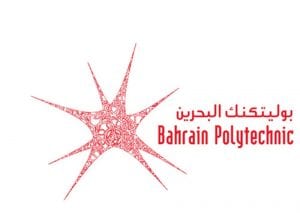
Read more in the report on EMI globally here:
https://www.britishcouncil.org/education/ihe/news/english-medium-instruction

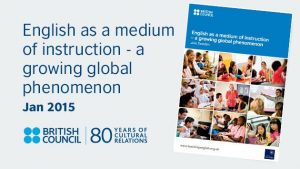
* * *
2018 December, Moscow “Trendy English” conference
Making Speaking Exam Preparation Authentic and Meaningful


We get stressed about exams, and often there isn’t a connection between what students are learning, and how they’ll be assessed. In this workshop, we’ll look at practical ideas for seamlessly building exam preparation into everyday lessons. When an exam involves real-life tasks, preparation is easier and classes are more fun!
Handout: appleby handout 2pp moscow dec 2018 prep for pdf-1yn7ne9
Powerpoint slides: rachel appleby euroexam washback moscow dec2018 pdf-21r61k0
* * *
2018 November
Corvinus University, Budapest
Networking Skills Workshop
Very much enjoyed working with both staff and students on this one-day course – we even got the chance to network at an event we were all presenting at!
* * *
2018 November, BESIG – IASI, Romania
Personalised input: minimum prep & maximum impact

In attempts to tailor BE & ESP courses as closely as possible to clients’ needs, we often find ourselves struggling with a huge range of materials – published course books, websites, and on-/offline documentation, including students’ own work-related sources – not to mention various other goodies we cook up ourselves!
This workshop looks at five sources and ways of exploiting them with minimal preparation, but to maximum effect, ensuring the students’ interests remain at the centre of learning.
~ live wordle with menti.com – industries our students work in:
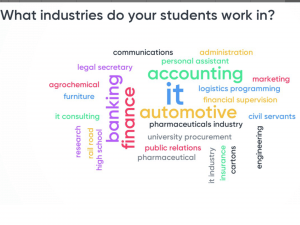
(c) Thanks to my lovely audience!
Handout: appleby handout besig 2018 pdf b-1zfafoz
Powerpoint slides: 2018 besig iasi rachel appleby personalized input pdf-1h2r455
* * *
2018 October, IH Kyiv
Making Speaking Exam Preparation Authentic and Meaningful

We get stressed about exams, and often there isn’t a connection between what students are learning, and how they’ll be assessed. In this workshop, we’ll look at practical ideas for seamlessly building exam preparation into everyday lessons. When an exam involves real-life tasks, preparation is easier and classes are more fun!
Handout: RACHEL APPLEBY Authentic Speaking Exam prep Handout 2pp IH Kyiv PDF-1uu8ngl
Powerpoint slides: RachelAppleby euroexam Washback IH Kiev PPT PDF FINAL B-18mj1qo
* * *
18-19 October 2018
Corvinus University, Budapest
Presentation Skills Workshop
It was to great to work with both staff and students on this two-day course. Many thanks for the experience!
* * *
2018, October, Hungary – IATEFL
Making Speaking Exam Preparation Authentic and Meaningful
Yessss – it worked! Live results from my talk, 6.30pm on 5 Oct, 2018 at IATEFL Hungary:
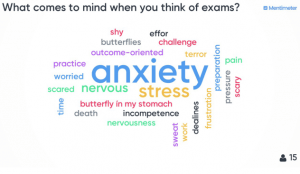
Handout: APPLEBY Handout 2pp IATEFL HU pdf-186wg85
Powerpoint slides: RachelAppleby euroexam Washback IATEFL HU PPT PDF-12py75e
* * *
EMI English Medium of Instruction / Academic Teaching Excellence – British Council training (for university staff)
2018, September, Turin, Italy
2018, July, Italy: Turin, and Grugliasco (“outer Turin”)
2018, June, Budapest, Hungary

This is a course I love working on! I’m always inspired by the participants who take such a huge step forward to teach in a second language in an international environment. It’s brave, but immensely exciting, and extremely rewarding.
I’ve been running courses in Central / Eastern Europe on a regular basis for the last three years, and am looking forward to more courses in Budapest – and Eger, I hope, – as well as returning to Italy, Turin ( – city of books & film – and of “The Italian Job” fame) in September.



Read more in the report on EMI globally here:
https://www.britishcouncil.org/education/ihe/news/english-medium-instruction

* * *
2018, June 6 – Lille, France
![]()

Making teaching personal – how to bring client-led content into your teaching
Teaching Business English is a chance to learn about our students’ professions. But making connections between real-live, authentic events or experiences and students’ own areas of work also enables us to address their motivation. This session looks at how to make such connections – as well use other ways to address students’ language needs. We’ll focus on a range of on-/offline and traditional sources to ensure our clients’ interests remain at the centre of learning.
Handout: Appleby Lille 2018 Handout 2pp-1yoz0fd
Handout 2: podcast links Appleby Lille 2018 Podcast links-24ao6t7
Powerpoint: Appleby OUP Lille Client led teaching-za5ink
* * *
2018, May, ELTA – Belgrade, Serbia
 Making Speaking Exam Preparation Authentic and Meaningful
Making Speaking Exam Preparation Authentic and Meaningful

Both teachers and students often get stressed about exams and often there isn’t a connection between what students are learning, and how they’re going to be assessed in the exam. In an ideal world, what goes on in the classroom should be useful for relevant, but students’ success and progress should also be tested appropriately. When an exam involves real-life tasks, preparation is much less of a chore for the teacher and, additionally, more fun for the student – leading to a positive washback effect on teaching. In this workshop, we will see some practical ideas for how you can seamlessly build exam preparation into your lessons every day.
Handout: APPLEBY Euroexam Speaking exam prep Handout 2pp ELTA 2018-1h3vc8y
Powerpoint slides: RachelAppleby Euroexam Washback ELTA 2018 PDF-279ocro
* * *
2018, May, Eger – Hungary
Eszterházy Károly University
The Confidence to Stand up and Talk: Presentations: 7 Top Tips
Giving a talk in front of a large audience – or even in front of a small group of your peers – can be daunting, and pretty nerve-wracking!
In my experience, it can be particularly challenging to know how to start, how to engage your audience and keep them involved, and, not least, how to end a presentation effectively, without embarrassingly fading away….
This talk highlights a few tried-and-tested ideas to help you not just survive your presentation, but perhaps even do a better job at helping your audience understand and follow you – whether you’re a student, a university lecturer, or conference presenter. (There’s always something we can do better!)

Handout: Appleby Eger 2018May Presentations Handout 2pp-2553msi
Powerpoint slides: APPLEBY Eger 2018May Presentations-135xgbq
* * *
2018, April, NYESZE Conference, Budapest
 Authentic connections: Addressing individuals’ motivational and language needs in Business English classes
Authentic connections: Addressing individuals’ motivational and language needs in Business English classes
Teaching Business English is a chance to learn about our students’ professions. But making connections between real-live, authentic events or experiences – yours or others’ – and students’ own areas of work also enables us to address their motivation. This session looks at how to make such connections and include invaluable language and skills work, leading to win:win classes for teacher and student!
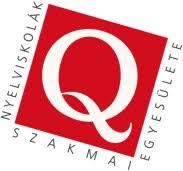
Handout (for session): Nyesze 2018 Authentic Connections Handout RachelAppleby-2fzkxok
Handout (extra podcast www. links): Nyesze 2018 Podcasts Blogs RachelAppleby-2jn8ai0
Powerpoint slides: Appleby Authentic Connections ppt-1tij1uv
* * *
2018, March, OUP Business English Online Conference
Making teaching personal: how to bring client-led content into your teaching
Here’s the introductory blogpost: https://oupeltglobalblog.com/2018/02/22/making-teaching-personal-bring-client-led-content-teaching/

In my webinar on 16 March, I’ll be looking at how we can incorporate real-life and authentic experiences and events into a course plan in a more structured manner, in order to enhance the learning experience through better engagement and higher motivation.
I hope you’ll join me!
Handout: 2018Mar16 OUP BE conf Appleby Client led teaching Handout-1snnhhu
Powerpoint slides: 2018Mar16 OUP BE conf Appleby Client led teaching PPSX-1nunm7v
* * *
2017, November, Globus / Budapest
& 2017, October, Katedra
Teaching Business English 1:1 – knowing you can do it!
 Although many of us teach one:one, some teachers fight shy of Business English, and ESP one:one in particular: teaching clients whose area of speciality we know little or nothing about can be a worrying prospect, and it can be frustrating working with their materials when we’re unfamiliar with the subject matter.
Although many of us teach one:one, some teachers fight shy of Business English, and ESP one:one in particular: teaching clients whose area of speciality we know little or nothing about can be a worrying prospect, and it can be frustrating working with their materials when we’re unfamiliar with the subject matter.
On the surface it seems somewhat daunting, but in my experience, this sort of teaching has been some of the most rewarding I’ve ever done: it’s fun, exciting and energizing, and I’ve usually learnt at least as much if not more than what I’ve taught.
In this talk, we’ll look at how to get over the initial worries that both client and teacher might have, discuss how to find out what we can expect, and investigate ways of addressing the client’s needs and expectations by focusing on three real examples.
I invite you to take the plunge!
Handout: APPLEBY Nov 2017 OUP Business One-one Globus handout 4pp-2kc9737
Powerpoint slides: Appleby 2017 Nov Globus OUP Business one_one PDF-rv59ux
* * *
EMI English Medium of Instruction / Academic Teaching Excellence – British Council training (for university staff)
2017, September and November: Maribor & Ljubljana, Slovenia
2017, June, Budapest, Hungary

 This is a course I love working on! I’m always inspired by the participants who take such a huge step forward to teach in a second language in an international environment. It’s brave, but immensely exciting, and extremely rewarding. I’ve been running courses in Central / Eastern Europe on a regular basis, for the last two and a half years.
This is a course I love working on! I’m always inspired by the participants who take such a huge step forward to teach in a second language in an international environment. It’s brave, but immensely exciting, and extremely rewarding. I’ve been running courses in Central / Eastern Europe on a regular basis, for the last two and a half years.
I hope also to be able to take up offers in the near future to run courses in Latin America – British Council centres in Lima (Peru) and Quito (Ecuador) are just two places where students are flocking to learn at university in English – and they’re just as brave as the tutors who teach them.
Read more in the report on EMI globally here:
https://www.britishcouncil.org/education/ihe/news/english-medium-instruction
 Ljubljana – beautiful, but pretty chilly in November!
Ljubljana – beautiful, but pretty chilly in November!
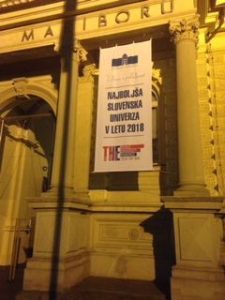
… and Maribor,
a top ‘THE’ (Times Higher Education – ranking) University
* * *
2017 October IATEFL
THE CONFIDENCE TO STAND UP AND TALK!

In classes in school, we often ask our students to give a presentation on a specific topic. Presentations are also common in business contexts. Yet, regardless of age, many find this challenge nerve-wracking. Course materials provide long lists of “useful phrases”, how to use visuals effectively, how (not) to design powerpoint slides, and so on, but still our students lack the confidence to present themselves and their topic in front of an audience.
What my students specifically need is how to get started, ways of engaging their audience and keeping them involved, and, not least, how to end their presentation effectively, without embarrassingly fading away. In choosing a topic, they need an angle on a talk to ensure audience interest, and a logical structure for organising content. Last, but not least, they need help in delivering a talk in a strong and clear voice.
Participants at this workshop will be involved in how to help their students in these aspects. This will include looking at a range of structures to suit a topic, audience and aims, and being able to choose ideas for implementing with the topics their students choose. Participants will also consider how to help students give direction to a talk, and provide a valuable take-home benefit for their audiences.
This workshop will look at hooks and tools to help our students not just survive their presentations, but succeed!
Handout: Handout Appleby 2017 IATEFL Hungary-rtg34g
Ppt slides: PPT slides IATEFL Hungary 2017-wwwwad
* * *
2017 June 1-3, ILSB Brno

 Improve your surfing skills – or, How to ride the waves of positive washback
Improve your surfing skills – or, How to ride the waves of positive washback
Both teachers and students often get stressed about exams and perceive a disconnect between learning and the way that achievement is assessed. In an ideal world, the two stages form a single continuum, where both can potentially affect the other to its advantage. When the exam involves real-life tasks, preparation is much less of a chore for the teacher and, additionally, more fun for the student – hence the beneficial washback effect on teaching. In this workshop, we will see some practical ideas for how you can seamlessly build exam preparation into your lessons every day.
Handout: Appleby euroexam Washback ILSB17 Handout PDF-11v9m61
Slides: RachelAppleby euroexam Washback Brno FINAL PDF -1zbhdk2
Classroom ideas and activites to help you prepare your students for (these) exams: http://www.euroexam.com/exam-preparation-classroom-activities
* * *
2017 April 22, Budapest NYESZE
 QUESTIONS: getting them right!
QUESTIONS: getting them right!

Handout: NYESZE QUESTIONS getting them right Handout PDF -sxr4b6
Slides: NYESZE QUESTIONS getting them right PPT PDF-2dhi1jj
How can we engage our students effectively? We ask questions throughout our lessons, but for what purpose, and with what results? What sorts of questions are going to get the best answers? And are we really interested in the responses? This is a session on effective questioning, and how the right questions can help you promote a communicative class, yet stay focused on language at the same time.
* * *
2017 February 4, Barcelona
Take the fear out of teaching ESP 1:1

“F.E.A.R. has two meanings – Forget Everything And Run, OR, Face Everything And Rise
The choice is yours.” Zig Ziglar
Handout: Rachel APPLEBY ESP 1_1 Handout PDF FINAL
Slides: ESP one-one Appleby IH Bcn Feb2017 PPT slideshow
* * *
2016 December, Budapest
 Slides: Christmas 2016 BakerStreet RachelAppleby
Slides: Christmas 2016 BakerStreet RachelAppleby
Handout (prints 2-to-a-page, back to back):
Christmas 2016 BakerStreet RachelAppleby
* * *
2016 November, Moscow & Budapest 

Business Result: Keeping up-to-date with clients
A session on effective questioning, and how the right questions can help you promote a communicative class, and stay focused on language at the same time.
Handout: oup-business-result-questions-handout
Slides: oup-business-result-uptodate-with-clients-questions-ppt-slideshow
* * *
2016 November 9, Moscow

Writing for Success!

Why is it so challenging getting our students to write in the classroom? Is it the ‘what’, or the ‘how’? To what extent are the activities we set in class typical of real-life activities? This session looks at how we can help students with real writing tasks that they need for exam purposes, and ways in which we can guide them, and motivate them to really develop their skills.
Handout: euroexams-speaking-moscow-2016nov-communicative-tasks-rachel-appleby-handout
Slides: euroexams-speaking-moscow-2016nov-communicative-tasks-rachel-appleb
&
Getting your students to talk for real!
 In my experience, being able to speak a language means demonstrating that we can use it, get something done with it, and communicate something meaningful. But to do this, we need to practise a lot. It isn’t enough if we just know what words to use, or if we can see these words on paper.
In my experience, being able to speak a language means demonstrating that we can use it, get something done with it, and communicate something meaningful. But to do this, we need to practise a lot. It isn’t enough if we just know what words to use, or if we can see these words on paper.
Most people like to talk about themselves, the things they are interested in, and their immediate environment, or even things which annoy them or they don’t like. They like to compare their ideas and opinions. So if we can provide space for communicative activities and information or ideas exchange in the classroom, then they may have a chance to practise in English!
Handout: euroexams-writing-moscow-2016nov-writing-for-success-rachel-appleby-handout
Slides: euroexams-writing-moscow-2016nov-writing-for-success-rachel-appleby
Webinar/Video (27′) of talk (prepared for Tomsk, RU): https://www.dropbox.com/s/f4ho5ar1j8tpjhb/Tomsk_Low.mp4?dl=0
* * *
2016 November 5, BESIG, Munich
Teaching ESP one:one Using one:one methodology to beat the big ‘S’ in ESP
Blurb
Many teachers have serious worries about teaching ESP, and ESP one:one in particular. And yet, clients’ needs are becoming increasingly specific. In my experience, this sort of teaching is extremely rewarding: it’s fun, exciting and energizing, and I’ve usually learnt at least as much as I’ve taught. This workshop looks at ways of drawing on specific subject matter that teachers are not expert in, but can relate to and use to good effect. We’ll do this by looking at three real clients.
Slides: teaching-esp-one_one-appleby-besig-nov2016-munich-slides
Handout: teaching-esp-one_one-appleby-besig-2016-munich-handout-pdf
* * *
2016 April NYESZE / 2016 February IH Barcelona
THE CONFIDENCE TO STAND UP AND TALK!
Blurb
 At school, students are often asked to give a presentation on a specific topic. Presentations are also common in business contexts. Yet, regardless of age, many find this challenge nerve-wracking. Course materials provide long lists of “useful phrases”, how to use visuals effectively, and so on, but still our students lack the confidence to do this well. What my students specifically need is how to get started, engage their audience, keep them involved, and, not least, how to end effectively.
At school, students are often asked to give a presentation on a specific topic. Presentations are also common in business contexts. Yet, regardless of age, many find this challenge nerve-wracking. Course materials provide long lists of “useful phrases”, how to use visuals effectively, and so on, but still our students lack the confidence to do this well. What my students specifically need is how to get started, engage their audience, keep them involved, and, not least, how to end effectively.
This workshop looks at hooks and tools to help students not just survive but succeed!
This talk is suitable for those who teach business English and/or teenagers.
Slides: The confidence to stand up and talk SLIDES
Handout: The confidence to stand up and talk HANDOUT 1
The confidence to stand up and talk HANDOUT 2
2015 November, IATEFL BESIG SITGES
LESS IS MORE: GETTING MORE OUT OF SHORT VIDEOS

Blurb
 In the ever-expanding world of the tools and tricks for language teaching, any motivated teacher will keep up to date, and draw on all possible resources to help engage students, and expand their horizons in English. However, this often comes at the cost of lengthy preparation, or over-challenging students.
In the ever-expanding world of the tools and tricks for language teaching, any motivated teacher will keep up to date, and draw on all possible resources to help engage students, and expand their horizons in English. However, this often comes at the cost of lengthy preparation, or over-challenging students.
When working with videos, too often I’ve been excited by YouTube clips, only to find that either students can’t cope, or I have to spend hours making the materials accessible.
There is now a wealth of published materials – interviews, mini documentaries – which closely address business students’ needs and interests. This talk will show how we can use these videos not only to focus on language and skills, but also inspire students, relate to real-world issues, and also serve as an invaluable stepping stone. The talk looks at options for exploiting these in both standard, and flipped classroom contexts.
Slides: Less is more Videos IATEFL BESIG Sitges Nov 2015 Slides
Handout: Less is more Videos IATEFL BESIG Sitges Nov 2015 Handout
BESIG conference selections – 2page article: Less is more Getting the most out of short videos BESIG Conference Selections Nov 2015 PDF
Associated video blog posts:
2015 February & May VIDEO blog posts on International Express
Integrating video content in the EFL classroom with International Express – Part 4
http://oupeltglobalblog.com/2015/05/28/integrating-video-content-in-the-efl-classroom-with-international-express-part-4
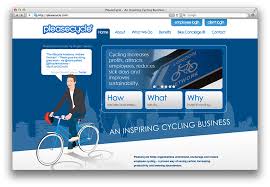 Based on International Express Upper Intermediate U6 video ‘Please Cycle’
Based on International Express Upper Intermediate U6 video ‘Please Cycle’
Integrating video content in the EFL classroom with International Express – Part 2
http://oupeltglobalblog.com/2015/02/25/integrating-video-content-in-the-efl-classroom-with-international-express-part-2/
Based on International Express Pre-Intermediate U10 Selexyz bookshop
2014 November, OUP Kraków
2015 February, IH Barcelona
2015 October, IATEFL Hungary
TOP-DOWN AND BOTTOM UP: SUCCESS WITH READING AND LISTENING

Blurb
 Reading and listening in a second language is difficult – but do our classroom exercises really help our learners? This talk will demonstrate strategies for dealing with any text, including those in exams, to provide useful skills for tomorrow, not just for today! (Based on extracts from OUP’s new six-level series, Navigate)
Reading and listening in a second language is difficult – but do our classroom exercises really help our learners? This talk will demonstrate strategies for dealing with any text, including those in exams, to provide useful skills for tomorrow, not just for today! (Based on extracts from OUP’s new six-level series, Navigate)
 Slides: Top down and Bottom up Success with reading and listening Slides
Slides: Top down and Bottom up Success with reading and listening Slides
Handout: Top down and Bottom up Success with reading and listening Handout
2015 June, IATEFL BESIG Summer Symposium, Budapest – Hungary
TEACHING ESP 1:1 – KNOWING YOU CAN DO IT!

Blurb
Although many of us teach one:one, some teachers fight shy of ESP, and ESP one:one in particular: teaching clients whose area of speciality we know nothing about can be a worrying prospect, and it can be frustrating working with their materials when we’re unfamiliar with the subject matter.
On the surface it seems somewhat daunting, but in my experience, this sort of teaching has been some of the most rewarding I’ve ever done: it’s fun, exciting and energizing, and I’ve usually learnt at least as much if not more than what I’ve taught (for better or for worse!).
This talk looks at how to get over the initial worries that both client and teacher might have, discuss how to find out what we can expect, and investigate ways of addressing the client’s needs and expectations by focusing on three real examples.
I invite you to take the plunge!
Slides: IAETFL BESIG Summer symposium Budapest June 2015 ESP one one Slides
Handout: Appleby BESIG 20June2015 Handout
3 Teaching ESP one:one OUP Adult newsletter post:
2014 April, IATEFL Harrogate
ADULT LEARNERS: HELPING THEM CLEAR THE NEXT HURDLE

Blurb
Modern adult learners characteristically stop and start learning, each time with renewed enthusiasm, yet have busy lives! How can we help them make visible progress?
I have three golden rules to support their motivation which I’ll be demonstrating through activities from OUP’s new International Express. All are based around global lifestyle topics, and address English for social and work purposes.
Slides: Adult learners Helping them clear the next hurdle SLIDES PDF IATEFL Harrogate April 2014
Handout: Adult learners Helping them clear the next hurdle
Associated Blogpost:
http://oupeltglobalblog.com/2014/03/26/iatefl-adult-learners-helping-them-clear-the-next-hurdle/
2013 November, BESIG Prague
DOES THE CUSTOMER REALLY KNOW BEST? GETTING THE MOST OUT OF IN-COMPANY TRAINING.

Blurb
What is it that makes in-company training such a challenge? How can we, at the same time, provide what learners want when teaching on-site, as well as meet the needs of the company training manager, when we, as teachers, probably know best anyway?
This session will highlight potential conflicts between these groups, in order to focus on the interests which all three parties share, not least, the learners’ need to communicate effectively in work and social environments.
Based on a survey of teachers, learners and company training managers, focusing on language, content and skills, this session will look at ways to solve this problem: providing nuggets of immediately usable language, strategies for dealing with delicate situations in writing or in person, and the ability to communicate effectively and fluently, without ignoring accuracy. The talk will be based on interesting, motivating and hot-off-the press materials from International Express, 3rd edition!
Slides: Does the customer really know best? BESIG Prague 2013
Handout: Does the customer really know best? BESIG Prague 2013 handout
BESIG conference selections – 2page article: Does the customer really know best BESIG Conference Selections Nov 2013 PDF
See also link to related blogpost and webinar under ‘WEBINAR’ pages



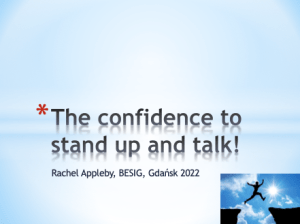
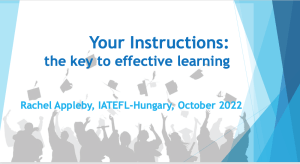

 This is where I keep general information about the workshops I run. These are intended for advanced level speakers of English (C1/C2), and focus predominantly on skills, rather than language.
This is where I keep general information about the workshops I run. These are intended for advanced level speakers of English (C1/C2), and focus predominantly on skills, rather than language.


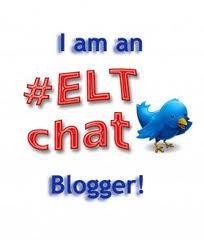

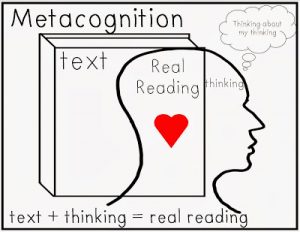
 Dealing with pronunciation in the classroom is one of those things that comes naturally to some, is consciously avoided by others, and is a bit of a bête noir for a few. We know these symbols are also something that many students fight shy of, especially at lower levels, and in particular if they are coming to English from a different script (Cyrillic, Arabic, etc.). So it needs handling with kid gloves. Or does it?
Dealing with pronunciation in the classroom is one of those things that comes naturally to some, is consciously avoided by others, and is a bit of a bête noir for a few. We know these symbols are also something that many students fight shy of, especially at lower levels, and in particular if they are coming to English from a different script (Cyrillic, Arabic, etc.). So it needs handling with kid gloves. Or does it?